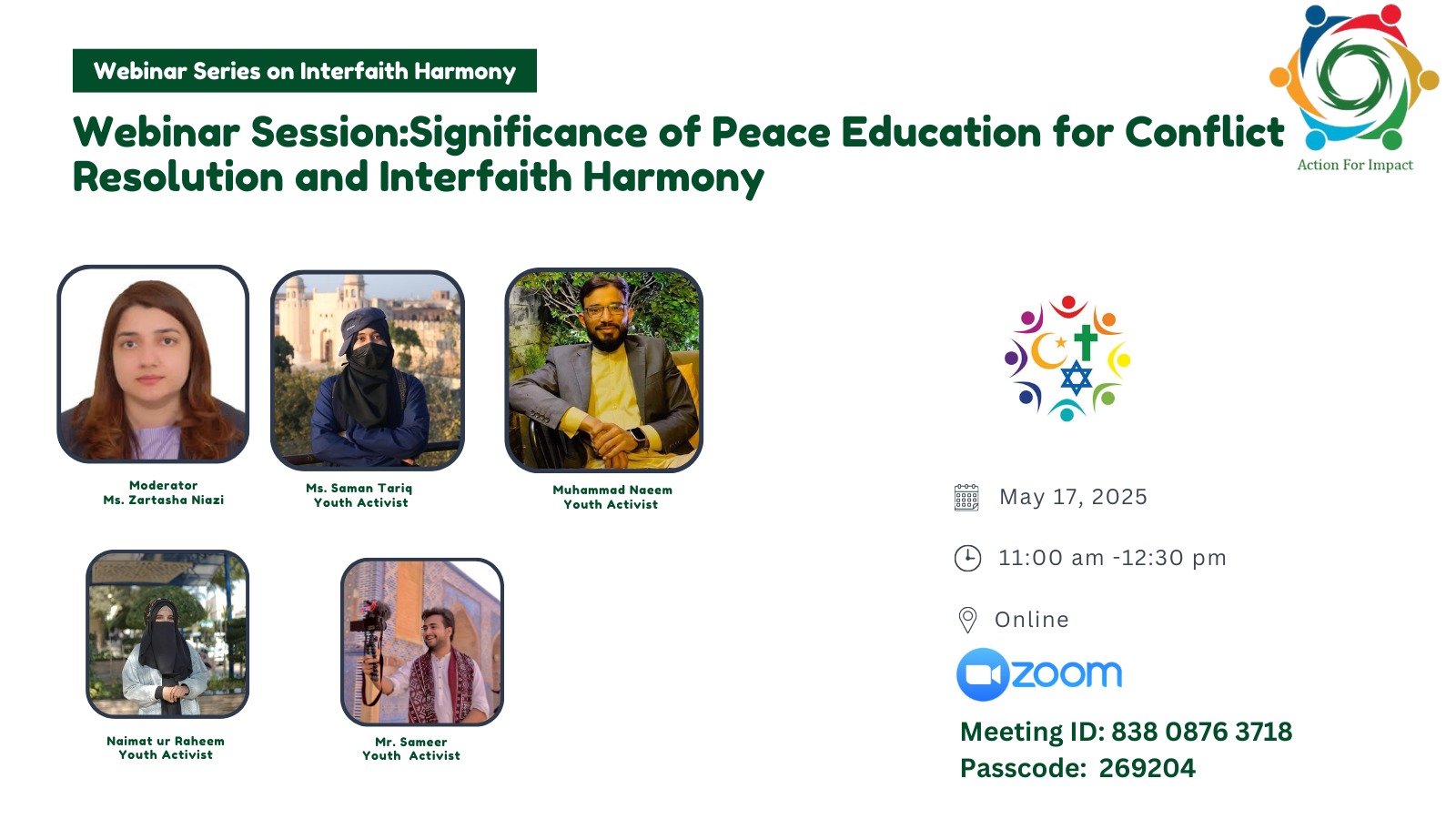WNAM REPORT: Action for Impact organized an impactful webinar titled “Peace Education for Interfaith Harmony: Moving beyond Policies”, bringing together youth activists from Punjab and Sindh to share their experiences, challenges, and innovative ideas for promoting peace and tolerance in Pakistan. The session underscored the critical need to embed peace education into all levels of society—far beyond traditional policymaking.
The event provided a platform for young change makers, who are actively advocating for peace in their communities, to call for tangible reforms in education, curriculum development, teacher training, and community engagement. The discussion focused on actionable steps to eradicate hate, fear, and bias, and to foster a culture of mutual respect and understanding across faith-based communities.
Ms. Naimat emphasized the need for a comprehensive curriculum overhaul, stating that current textbooks rarely teach concepts of peace, tolerance, or conflict resolution. “To build a peaceful society, we must start by removing hate content from educational materials and integrating values-based education from primary to higher levels,” she said.
Speakers highlighted that sensitizing teachers at all levels is essential to model and propagate messages of peace. Educators must be equipped with the knowledge and skills to teach peace, tolerance, and empathy in classrooms and beyond.
Participants stressed that peace education efforts must extend beyond mainstream schools. “Our campaigns must include madrassas, missionary schools, and community spaces to ensure inclusive outreach,” said one participant. They emphasized that faith-based communities must be given their rightful place in dialogues surrounding education, healthcare, voting rights, and civic participation.
Ms. Naeem shared his personal journey from being educated in a madrassa to becoming a Hafiz-e-Quran, and how his worldview evolved through social work and interacting with people of diverse faiths during his college years. “Peacebuilding through joint ventures with other communities helped eliminate biases I didn’t even know I had,” he reflected.
Sameer Ali from Sindh called for the integration of experiential learning methods to instill empathy and conflict-resolution skills among children and youth. “Peace education must go beyond lectures—it must be lived and experienced,” he said. He also stressed the importance of involving Gen Z in policy design to ensure collective ownership of peace initiatives.
Ms. Saman Tariq emphasized that peace education must be nurtured within homes, neighborhoods, and community spaces. “Policies alone cannot eliminate hatred and discrimination—we must embed peace in every layer of society,” she said, calling for community-driven conversations and interfaith collaboration.
All participants unanimously agreed that building a peaceful, inclusive Pakistan requires grassroots commitment, educational transformation, and a long-term vision. The group pledged to initiate peacebuilding efforts from their homes, towns, villages, and cities and to work collaboratively to ensure interfaith harmony and social cohesion.
Action for Impact is a social enterprise dedicated to promoting social justice, inclusive education, and peacebuilding across Pakistan. Through training, advocacy, and grassroots mobilization, the organization empowers young people to become agents of positive change in their communities.
23
previous post


